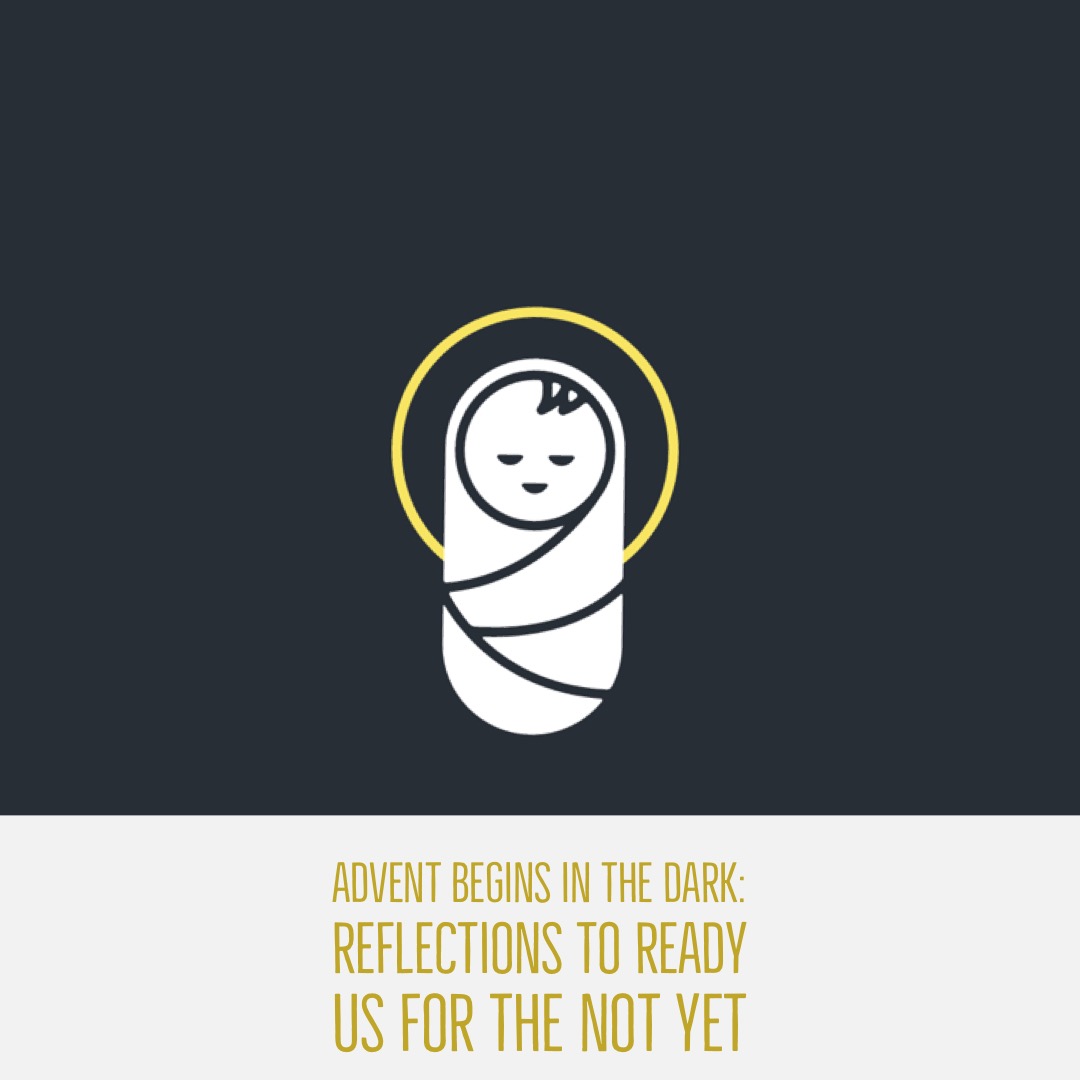
 Whenever people gripe to me about my insistence that Advent is a season centered on the second coming of Christ not his first and whenever they tell me they want to “hurry up already and get to the Christmas story,” I think to myself:
Whenever people gripe to me about my insistence that Advent is a season centered on the second coming of Christ not his first and whenever they tell me they want to “hurry up already and get to the Christmas story,” I think to myself:
Have you freaking read it— the Christmas story? I’m not sure you’d like your place in it
Let’s get real— if there was a figure for you in the manger, chances are, dear reader, you’d get placed somewhere offstage, in Rome with Caesar Augustus. Or maybe in the gated communities of Jerusalem, rubbing elbows with King Herod, Caesarʼs lackey.
The analytics tell me most of you are reading this on an IOS device. By default, you’re not the poor who hungers for good news. You’re not the captive who cries for liberty. You’re not the oppressed who yearns for exodus. I’ll bet you’re not blind; you can see just fine.
Nor are you lowly even if you’re in need of some uplift.
Give it some hard, sober thought and I doubt you’ll be hastening to the manger. According to the prophet Isaiah- Not only is the promised Messiah not for someone like you or me, the Messiah is promised by God exactly in order to be against someone like me or you. As the Messiah’s mother sings: “He will scatter the proud and bring down the powerful and send the rich empty away…”
I hate to put a crimp in your Christmas cheer, but it’s likely…that’s you and me. Just listen again to the cute baby Jesus’ momma:
The coming of Christ isn’t jolly, glad tidings for everyone.
You have to give Herod credit. He wasnʼt stupid. He knew bad news when he heard it. Herod knew that joy coming to Maryʼs world meant an attack upon his world. Herod knew that the prophet Isaiah promised that when God takes flesh in the Messiah, God would take sides.
With those on margins.
With the people working the night shift and with those working out in the fields.
With the oppressed and the lowly and the refugee.
For Herod, for the white-collared and the well-off and the people at the top of the ladder, for the movers and shakers of the empire- Christmas was— is— bad news not good news.
Christmas, Herod knew, didn’t signal jolliness.
It signaled judgement not joy.
I wonder if thatʼs why we spike the eggnog and drape Christmas with so much cheap sentimentality. I wonder if in our heart of hearts we know that if we braced ourselves and told the story of Christ’s coming straight up as the Gospels tell it, then, like King Herod, we might have a reason to fear. I wonder if deep down, underneath all our Christmas kitsch and phony nostalgia and self-medicating day drinking, we’re afraid.
Afraid that if Christ’s coming wasn’t primarily for people like us, then that means…when he comes again…he’ll be against people like us. If he didn’t come for us at the first Advent, then when he comes again at the second Advent will he be against us, bringing not joy but judgement?
For his rookie sermon in Nazareth, Jesus chooses a text from Isaiah. Standing up in his hometown church, Jesus quotes the prophet, saying: “‘The Spirit of the Lord is upon me, because he has anointed me to bring good news to the poor. He has sent me to proclaim release to the captives and recovery of sight to the blind, to let the oppressed go free, to proclaim the year of the Lord’s favor.” And then Jesus slams shut his Bible and declares: “Today this scripture has been fulfilled in your hearing.”
Did you notice what he did there?
Jesus says: “‘The Spirit of the Lord is upon me, because he has anointed me to bring good news to the poor…to proclaim release to the captives ….to proclaim the year of the Lord’s favor.’
And then Jesus says: “Check. I’ve fulfilled this one.” Jesus cut out Isaiah’s other line.
Jesus takes out Isaiah’s prophesy about God’s vengeance.
He cuts it. Isaiah’s line about God’s vengeance- he cuts it out because it’s in him. It’s in his body, where he’ll carry it to a cross.
The prophet Isaiah was right. The salvation brought by the Messiah goes through wrath not around it. The salvation brought by the Messiah does not avoid God’s wrath; the Messiah saves us by assuming God’s wrath.
Christ doesn’t cancel out God’s wrath; he bears it on our behalf.
It’s not just that Christ’s faithfulness is reckoned to you as your own; it’s that your sin- all of it, your every sin- is reckoned to him as his own. His righteousness is imputed to you, and your every sin is ex-puted to him. In his faithfulness he has fulfilled all righteousness. And in his suffering he he has fulfilled all judgement.
His Mother Mary wasn’t wrong. The coming of Christ does mean God’s judgement on the unjust. The coming of Christ does mean the comeuppance for the rich and the proud and the powerful but that comeuppance comes on the cross. As the the Apostle Paul says in Colossians, God in Christ disarmed the powerful and the rich, ruling authorities by making a public spectacle of them and triumphing over them by the cross.
His Mother Mary wasn’t wrong because neither was his cousin John the Baptist wrong:
Mother Mary’s son is the Father’s Lamb who bears the sins of the world.
And if he bore the sins of unjust us, then when he died our sins died with him.
Once.
For all.
Once for all our sins: past, present, future.
There is no sin you have committed and, more importantly, there is no sin you have yet to commit that is not already covered by the blood of the lamb. His righteousness has been gifted to you. It’s yours and it’s free by faith. And your sin, it belongs to him now. Such that to worry about your sins, to hold onto the sins done to you- Martin Luther says it’s like stealing from Jesus Christ. They don’t belong to you anymore. They’re his possessions.
Luther also says the cross frees us not to pretend.
The cross frees us to name things for what they really are.
So let’s call it for what it is- You’re not the poor. You’re not the oppressed. You’re not the captive on whom God’s favor rests. Yes, you’re proud and, yes, you’re powerful and, yes, you do participate in and you perpetuate injustice. Yes, you do. And, yes— be honest— you deserve to be punished for your sins.
You have been.
You have been punished for your sins.
You were punished when God drowned you in your baptism into his death and resurrection so that his favor might be yours too.
Jesus didn’t eliminate Isaiah’s Day of Vengeance; he experienced it.
And when he comes again we can greet him, naked and unafraid, because we know that whatever sin he finds in us has already been born by his body.
The cross frees us to call things as they are so let’s just name it: if Christ had been born not into the 1st but the 21st century then, chances are, we’d be the bad guys in the story not the good guys. Not the ones on whom God’s favor rests. But, the Lord’s favor rests upon people like us NOT by us doing good works for those on whom his favor rests. The Lord’s favor rests upon people like us only by trusting that while we were yet enemies Christ the Judge was judged in our place.
Only a conscience free from the fear of judgement is truly free to make the poor and the oppressed the object of compassion instead of the object of your anxiety.
We are justified not by our place in this story but by faith in what Christ does at the end of this story at a place called Calvary.
If the analytics are correct dear reader, then it’s a safe bet that Jesus Christ came for people unlike you. But— hear the good news— Jesus Christ died for the ungodly like me.
And you.
That’s how Mary’s son makes his mother right.
